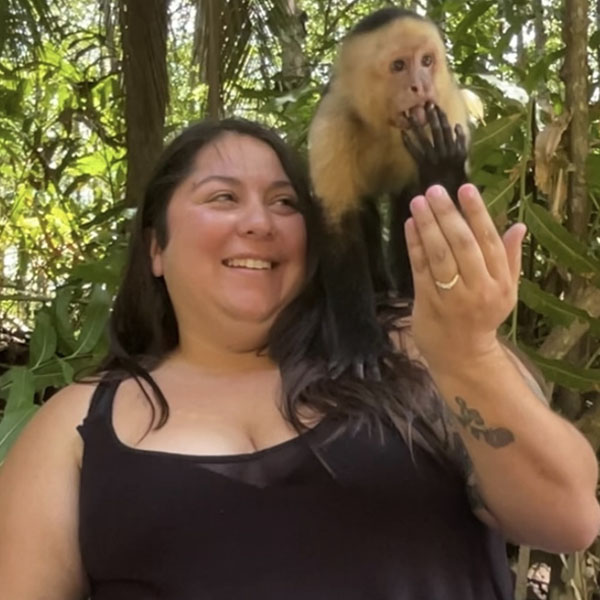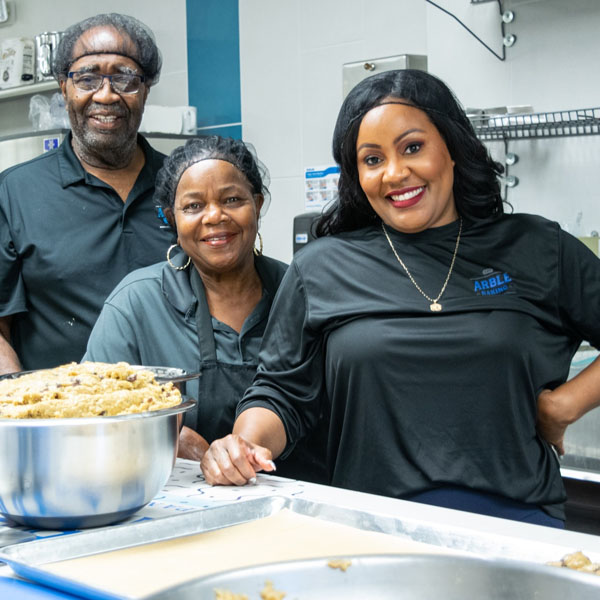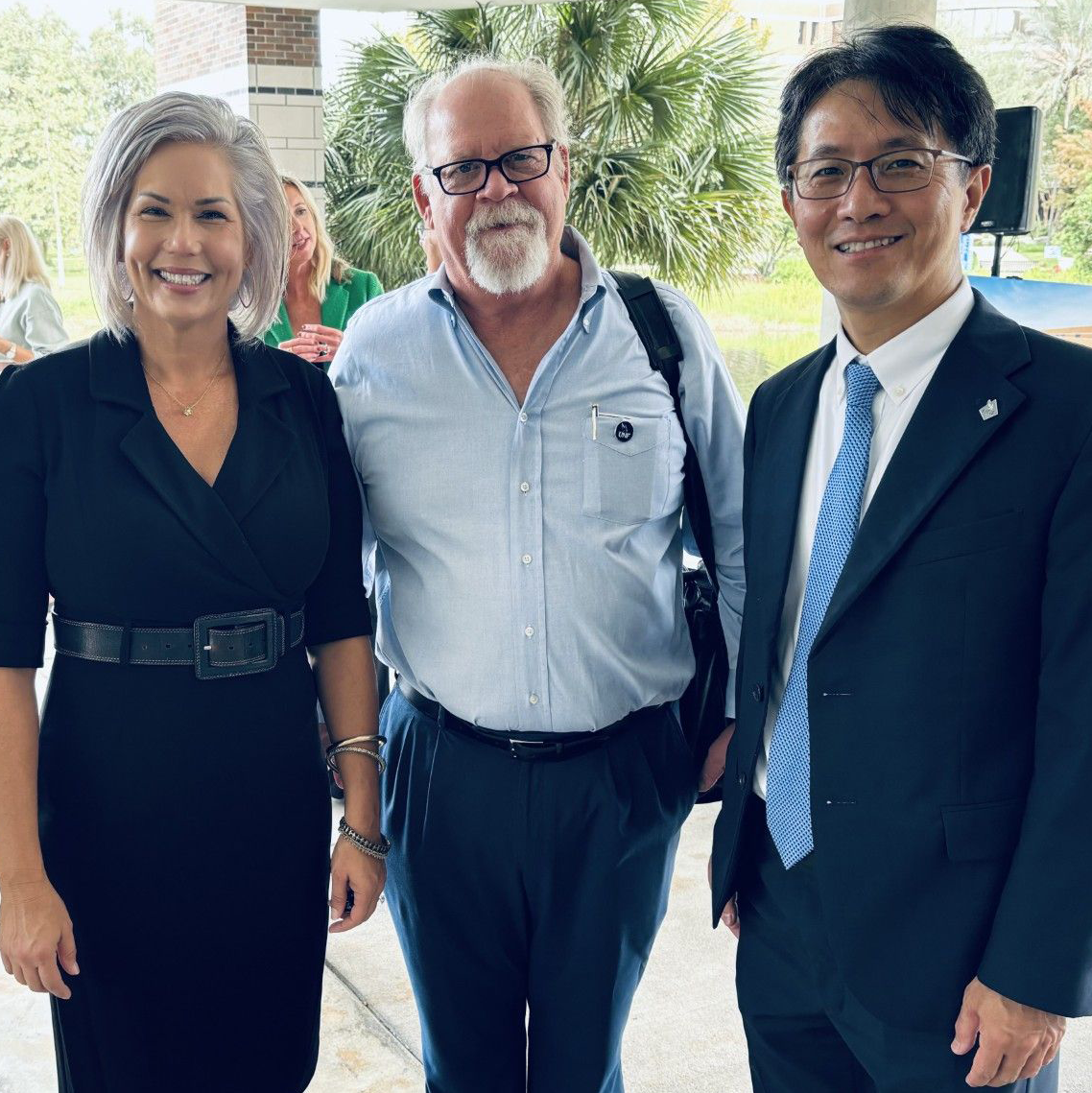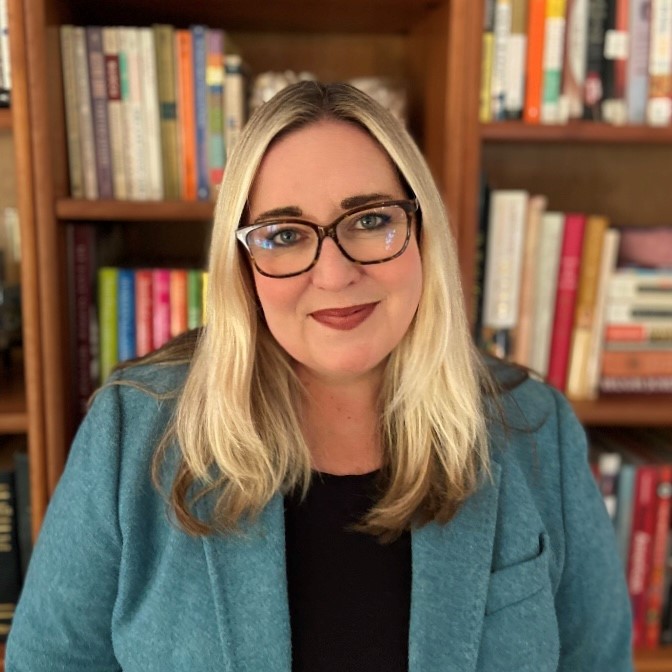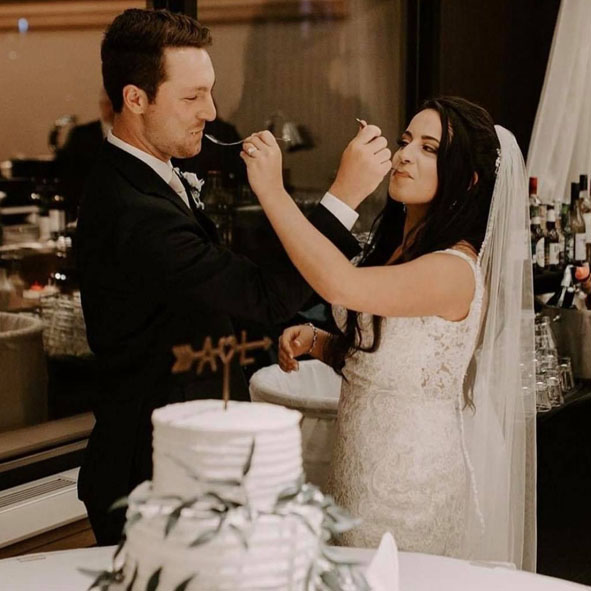Recent Spotlights
Alumni Spotlight: Bethany "Bebe" Baker ('20)
Breaking barriers in healthcare begins with ensuring that all aspiring nurses are represented, supported, and empowered within their education.
Bethany “Bebe” Baker’s (’20) journey marked a significant milestone for UNF Brooks College of Health. As the first deaf nursing student to pursue a Bachelor of Science in Nursing, Baker reshaped the program's approach to inclusive education.
At only six months old, Baker's parents discovered she was profoundly deaf. Eventually, this led them to move to Saint Augustine, where she could receive a better education at Florida School for the Deaf and the Blind. After graduating from FSDB in 2009, she earned a Bachelor's degree in History and Theater Arts at Gallaudet University. However, 2016 marked a turning point in her career. At 28 years old, Baker moved to Tennessee and was asked to care for a 96-year-old Deaf woman, Mama Ray. "I was able to communicate with her directly, and it really hit me," she said. Despite coming from a family of nurses, Baker didn't consider nursing as a career path, but this sparked the passion for becoming a nurse. What started as a temporary caregiving role ultimately became the foundation for her long-term career in healthcare.
In 2016, she earned her CNA license and briefly worked at the Emergency Department in Johnson City, TN. Missing her family led Baker back to the First Coast, where her decision to attend UNF was built on the nursing program's strong accommodation and a supportive environment. Dr. Li Lorez, UNF School of Nursing director, noted that since Baker's admittance, the university adjusted the way it taught the program. She had access to closed captioning for her courses, specialized equipment, and most notably, a stethoscope that could show her a visual representation of the sounds. Baker highlighted that the Disability Resource Center was the groundbreaking part of her success within the nursing program. Without them, the program would have been three times more difficult simply because there would be no communication access," Baker said. With the assistance of highly skilled interpreters from the DRC, Baker navigated the complex nursing coursework with ease. "
Additionally, Baker took her education to the next level and studied abroad with nursing students at Chiang Mai University in Thailand. While studying there, she was exposed to the cultural differences within healthcare. As she visited hospitals and clinicals overseas, she grew both personally and professionally. Interpreters Debra and Alison accompanied her, ensuring that she could have full access while training. Beyond the clinical setting, she engaged in exploring Thailand's history and cuisine, and feeding the elephants, making her trip that much more memorable.
Once Baker graduated with her BSN, she took the NCLEX and passed it on her first attempt. She applied to over sixteen positions before she was finally accepted into the nursing residency program at HCA Memorial Hospital. She appreciates the managers who trusted her ability and believed in her potential as a nurse.
Having an interpreter allows her to build real rapport with patients and collaborate effectively with my coworkers. They also help her stay aware of environmental cues such as IV pumps, call lights, etc. By being present in their care, they too better understand and support Deaf individuals in their own lives.
Plus, when it comes to working with Deaf patients, communicating directly in their shared language allows for complete clarity about their medical situation. “I’ve been able to resolve misunderstandings about treatment plans or medications that resulted from communication barriers in previous visits,” she said.
Her short-term goal is to earn her CEN certification and become more involved in nursing management, but long-term she hopes to work in an ASL-accessible clinic. Outside of nursing, she has a second job with a suicide-prevention hotline. In her downtime, she loves playing fetch with her Frenchie, Groot, working on diamond paintings, or relaxing with a good book on the couch.
(Written by Chanelle Williams, published 1/30/26)
Alumni Spotlight: Will Pease
You know how the saying goes: “New Year, New Me.” Well, Ozzie understood the assignment. As we continue to celebrate the Jaguars’ divisional title, this month’s #AlumniSpotlight shines on Will Pease (’20), the Manager of Digital Media for the Jacksonville Jaguars and the mastermind behind our Osprey’s bold new look.
Pease’s connection to the University of North Florida started long before college. Growing up in Jacksonville, he often ran on campus during high school and admired its beauty. When it came time to choose a university, the affordability and opportunity provided by UNF made it the clear choice.
As a marketing major in the UNF Coggin College of Business, Pease discovered his passion for creativity. “Coggin was great because they were starting to offer classes focused on social media and digital marketing,” he said. Professors and local business connections left a lasting impression and helped him build a foundation for his career.
Pease’s professional journey began with part-time work for the Jacksonville Jaguars’ Jax Pack program, followed by hands-on internships in digital marketing. After graduating in 2020, his plans for a New York internship were disrupted due to the pandemic, but Pease pivoted and landed a role with the Jaguars’ digital team. “I started in October 2020 and have been here ever since,” he said. Today, he manages their digital platforms like the team website, app and YouTube channel.
Although his degree focused on marketing strategy, Pease always loved drawing. He taught himself digital illustration using Procreate and spent years refining his skills. “I started posting my art on Instagram and people loved it,” he recalled. That set the stage for an unexpected opportunity.
When the North Florida Ospreys sought a fresh mascot design, Pease’s work caught their attention. After meeting with the team, he delivered a design that balanced tradition and personality. “It was important that the mascot looked like an osprey and aligned with UNF’s athletic branding,” he said. The final product included two versions: a fierce Ozzie for athletics and a friendlier one for family and community engagement.
For Pease, creating the new Ozzie was about more than design. “I just want UNF students, alumni and fans to think it’s cool and feel proud of it,” he said. Judging by the buzz on campus and social media, he accomplished exactly that.
(Written by Maranda Leone, Published 1/6/26)
Alumni Shoutout: Jalen Yearwood
It's always a good time to be an Osprey, but it's an even better time to be Jaylen Yearwood!
In the span of one month, he's helped the Ospreys Men's Soccer team win their second consecutive ASUN Conference Championship, been named Defensive Player of the Year, played in an NCAA tournament match, been named to the United Soccer Coaches All-Atlantic Region First Team, earned his finance degree, from the Coggin College of Business, and now been drafted by Orlando City SC with the 14th overall pick in the MLS SuperDraft.
Alumni Spotlight: Rich Phelan
While all Ospreys will one day leave The Nest after crossing that graduation stage, many hover within SWOOPING distance, ready to return to the flock. This month’s Alumni Spotlight shines on one of our nearby neighbors, Rich Phelan (’01), who serves as a financial consultant with Florida Financial Advisors.
Phelan first enrolled at the UNF Coggin College of Business when after serving in the U.S. Navy, he was determined to build a life for his kids in Jacksonville. UNF gave him the path he needed: an accounting and finance degree, a life-launching job referral from Dr. Gary Fane, and a community that embraced his family. His kids grew up going to North Florida Ospreys camps, learning from coaches, and even hanging out in his classes.
Fast-forward through the years…all it took was one invitation to a University of North Florida event to bring him right back into the fold. Since then, he's become one of the most involved alumni around, attending Third Thursdays, cheering loudly at basketball games, hitting the gym, and stepping up as chair of the new Osprey Alumni Advisors Network.
And now in 2026, his lifelong connection has come full circle. He was recently voted in as a new member of the UNF Alumni Association Board of Directors, starting his term this Summer. Serving as a representative of over 110,000 UNF alumni, his role not only recognizes his dedication to the university, but also the countless ways he continues to advocate for and give back to the Osprey community.
Ask him why he loves UNF and he’ll tell you. It’s a lifestyle, not a place you leave behind. It’s where he ends tough days with a workout, meets friendly faces who know him by name, and feels genuinely wanted by a community that reaches out, not just for donations, but for connection.
You may have even spoken with him earlier this month as he completed the Swoop the Loop 5K, with his eldest daughter by his side and a flock of grandkids cheering them on as they crossed the finish line. Three generations of Ospreys all tied to a campus that doesn’t just feel like home; it is home.
(Written by Maranda Leone, Published 2/18/26)

